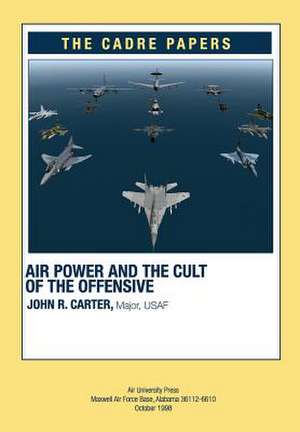Airpower and the Cult of the Offensive
Autor Major Usaf John R. Carter Contribuţii de Air University Press, Air University Pressen Limba Engleză Paperback
Preț: 110.64 lei
Nou
Puncte Express: 166
Preț estimativ în valută:
21.17€ • 22.08$ • 17.60£
21.17€ • 22.08$ • 17.60£
Carte disponibilă
Livrare economică 27 februarie-13 martie
Preluare comenzi: 021 569.72.76
Specificații
ISBN-13: 9781479193967
ISBN-10: 1479193968
Pagini: 128
Dimensiuni: 170 x 244 x 7 mm
Greutate: 0.22 kg
Editura: CREATESPACE
ISBN-10: 1479193968
Pagini: 128
Dimensiuni: 170 x 244 x 7 mm
Greutate: 0.22 kg
Editura: CREATESPACE
